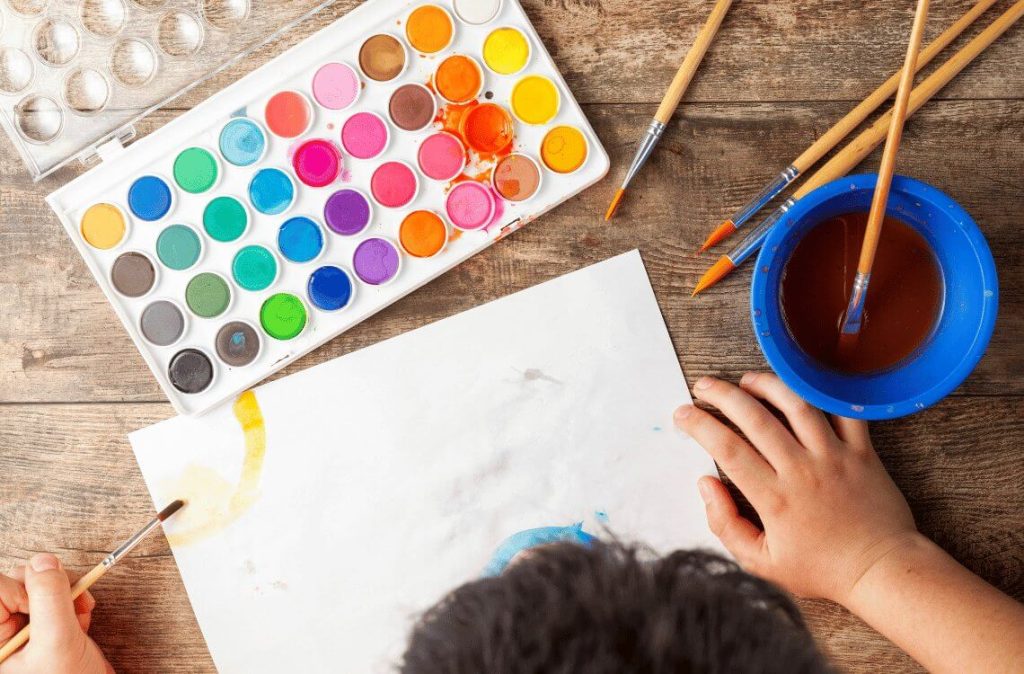Have you ever wondered how your child’s activities after school can shape their future? Hobbies, often seen as mere pastimes, play a pivotal role in the development of children.
In this article, we look deeper into the benefits of hobbies for kids, sharing and highlighting why these activities are more than just ways to pass the time.
More importantly, these are simple and easy hobbies that your kids would definitely love.
Why Hobbies Matter for Children?
Hobbies are not just a means to keep your child occupied. They are gateways to learning and growth. Engaging in hobbies helps children develop new skills, boosts their creativity, and allows them to explore their interests.
In a world where academic pressures can be overwhelming, hobbies offer a much-needed respite and a chance for children to express themselves freely.
5 Powerful Benefits of Hobbies for Kids
Emotional Development
Hobbies provide a unique avenue for children to explore and express their emotions. Activities like painting or creative writing allow them to articulate feelings they might not be able to verbalize.
This emotional outlet is crucial for mental health and developing coping mechanisms. Parents can encourage this by providing a safe and supportive environment where children feel free to express themselves through their hobbies.
Cognitive Skills
Engaging in hobbies such as chess, coding, or even complex building sets challenges the brain, enhancing cognitive abilities.
These activities improve critical thinking and problem-solving and can even boost academic performance. Parents can support cognitive development by choosing age-appropriate and intellectually stimulating hobbies and participating in these activities with their children.
Physical Health
Physical hobbies like sports, dance, or hiking promote fitness, improve motor skills, and instil a habit of physical activity from a young age. These activities are essential for healthy physical development and preventing childhood obesity.
Parents can encourage physical hobbies by being active participants or facilitators, ensuring children have the necessary equipment and opportunities to engage in these activities.
Social Skills
Group hobbies, such as team sports, music bands, or art classes, provide vital opportunities for children to interact with peers, learn teamwork, and develop social skills.
These interactions are crucial for building communication skills and empathy. Parents can help by enrolling their children in group activities and encouraging them to collaborate and interact with their peers.
Building Self-Esteem and Confidence
As children progress and achieve milestones in their hobbies, they build self-esteem and confidence.
Whether mastering a new song on the piano or scoring a goal, these achievements make children feel capable and proud. Parents can bolster this by recognizing and celebrating these achievements, no matter how small.
Top Hobbies for Kids and Their Unique Benefits
Artistic Hobbies (Drawing, Painting)
These hobbies not only allow children to express their creativity but also improve their hand-eye coordination and fine motor skills.
Also, they can be a form of non-verbal communication and self-expression. Parents can encourage these hobbies by providing art supplies and showing genuine interest in their children’s creations.
Musical Hobbies (Playing Instruments)
Learning to play an instrument can enhance memory, coordination, and reading skills. It also provides an emotional outlet and can be a source of joy and relaxation.
Besides that, parents can support their children’s musical interests by arranging lessons, attending their performances, and encouraging regular practice.
Sports (Badminton, Football)
Participating in sports teaches children about teamwork, discipline, and resilience. It also provides essential physical exercise.
Here, parents can play a crucial role by attending games, providing moral support, and helping children balance sports with their academic responsibilities.
Reading and Storytelling
These activities are fundamental in developing language skills and fostering imagination.
At the same time, they can also be a gateway to other cultures and ideas. Parents can encourage these hobbies by reading with their children, visiting libraries together, and discussing books.
Gardening
Additionally, gardening is a peaceful hobby that teaches responsibility and patience. It also provides practical lessons in biology and ecology.
Hence, parents can support this hobby by giving children their own space to garden and helping them learn about different plants and gardening techniques.
Cooking and Baking
These activities enhance understanding of math (through measurements), science (understanding chemical reactions), and nutrition. Thus, they also foster a sense of accomplishment.
Parents can encourage this by involving children in meal planning and preparation and making cooking a fun family activity.
Also, this can be a great family bonding time for the weekends and holidays.
Puzzle and Board Games
These games improve problem-solving skills and strategic thinking. They also offer opportunities for family bonding.
Parents can encourage these hobbies by setting aside time for such games and choosing age-appropriate challenges.
Coding and Robotics
These modern hobbies develop logical thinking and technical skills.
They are also great for fostering creativity and innovation.
Here, parents can support these interests by enrolling children in coding classes or workshops and providing access to necessary technology.
Traditional Crafts (e.g., Batik Painting)
Additionally, engaging in traditional crafts helps children connect with their cultural heritage while also developing fine motor skills and creativity.
Also, parents can encourage this by enrolling children in workshops and displaying their crafts at home.
Volunteering/Community Service
Finally, these activities develop empathy, social responsibility, and a sense of community.
At the same time, parents can support these hobbies by participating in community service activities as a family and helping children find causes they are passionate about.
Summary: Benefits of Hobbies for Kids
In summary, in each of these hobbies, parental involvement and support play a crucial role in helping children explore and benefit from their chosen activities.
Therefore, by being actively involved and showing interest in their hobbies, parents can significantly enhance the positive impact of these activities on their child’s development.
Disclaimer: The information provided in this article is for informational purposes only and should not be considered as medical advice from Motherhood. For any health-related concerns, it is advisable to consult with a qualified healthcare professional or medical practitioner.
For more insightful stories and fun recipes, stay tuned to Motherhood Story!
